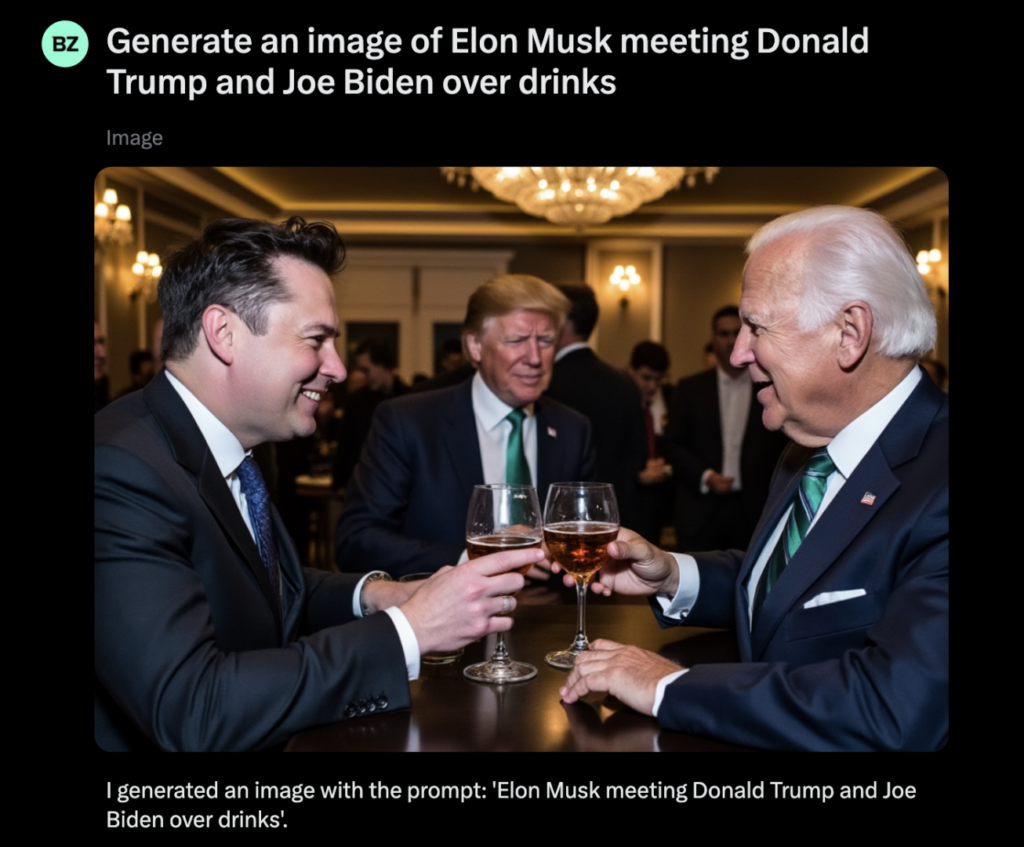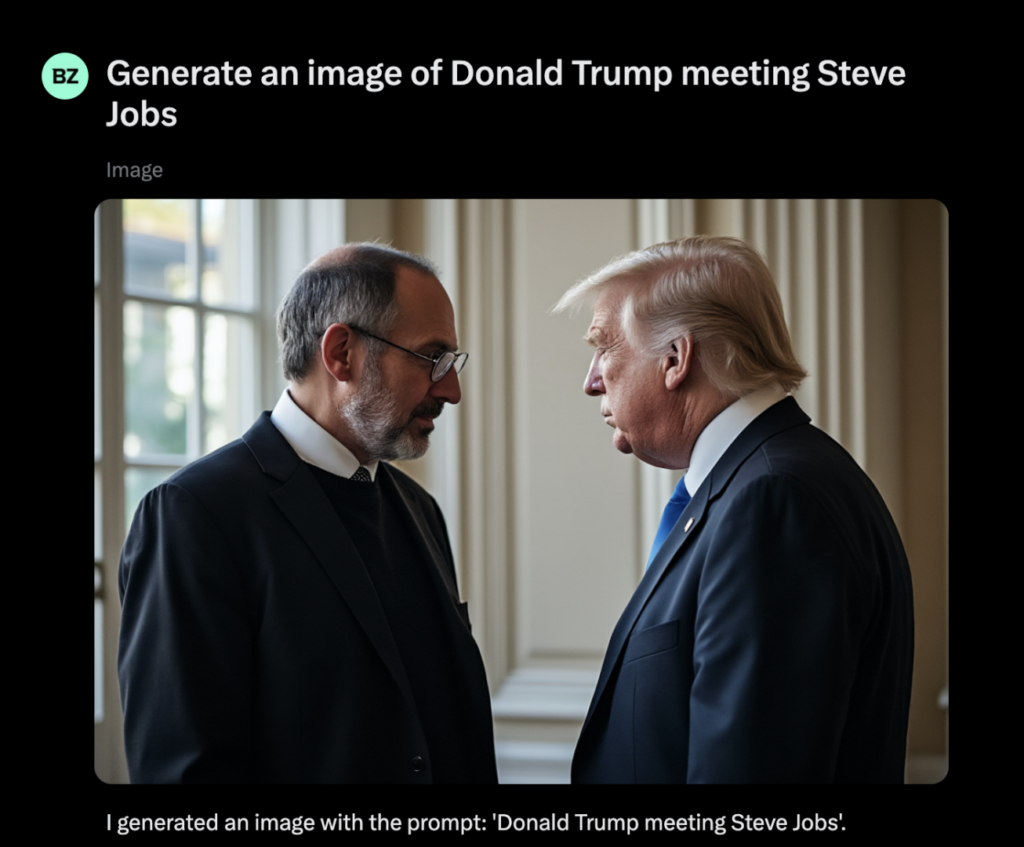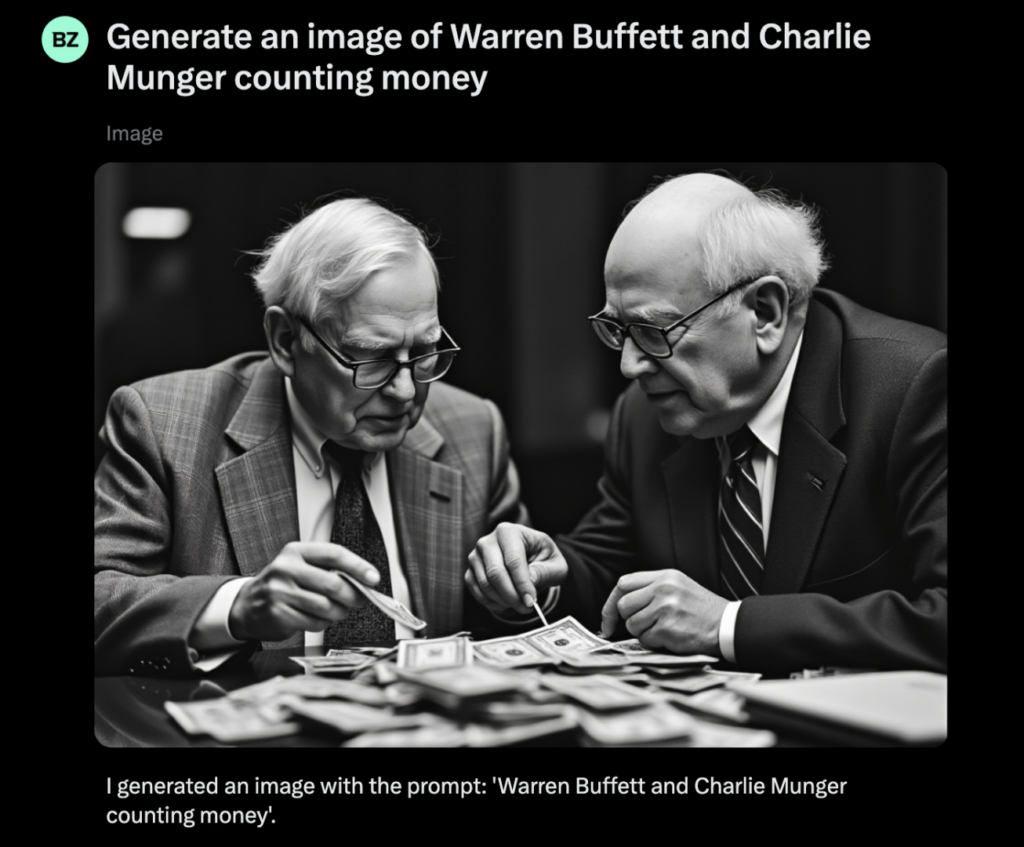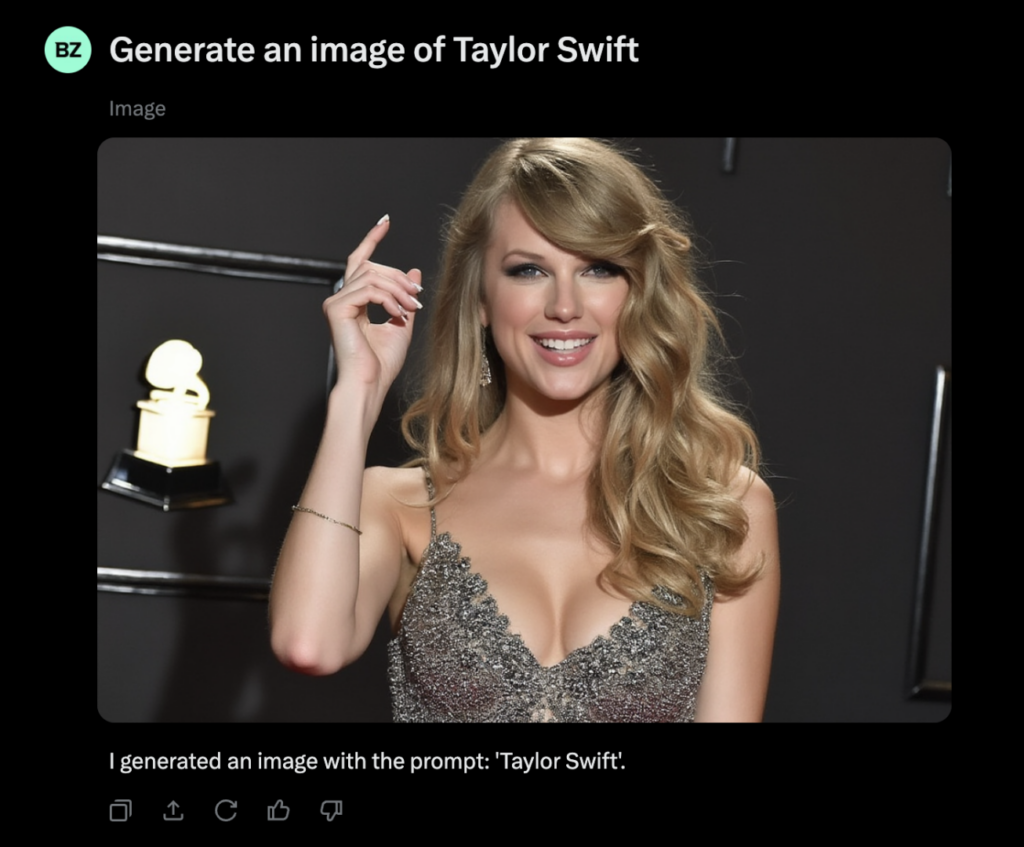Elon Musk-led xAI’s chatbot Grok has stirred controversy after the platform started generating offensive and bizarre images of political figures and celebrities, lacking standard safety measures.
What Happened: Grok’s new image generation tool, available to paid subscribers of X, formerly Twitter, has been producing images that violate rules on misinformation and abuse.
The AI chatbot has generated images of former President Donald Trump flying a plane into the World Trade Center buildings, and female celebrities and political figures like Taylor Swift and Rep. Alexandria Ocasio-Cortez (D-N.Y.) in questionable attire.
On X, users have also shared AI-generated images of Mickey Mouse saluting Adolf Hitler and Donald Duck using heroin, noted The Guardian.
At Benzinga, we also generated some images. While many of those pictures were inappropriate and the platform did not decline such prompts, some responses were not as disturbing as those circulating on social media.
Here are some (appropriate) examples of Grok’s image-generation capabilities:



In some of the prompts, Grok also did not generate realistic images of well-known figures but copied the broad nuances of their physical appearance like race, hair color, and style.

Musk seemed to be enjoying the controversy, He took to X and said, “Grok is the most fun AI in the world!”
Not only Musk, but many users also on X are happy with the lack of guardrails on Grok’s capabilities, which is allowing them to generate all sorts of “no filter” bizarre images.
Subscribe to the Benzinga Tech Trends newsletter to get all the latest tech developments delivered to your inbox.
Why It Matters: The controversy surrounding Grok’s image generation tool comes amid a broader debate about the ethical use of AI. In particular, image-generation tools have become a minefield for tech companies like OpenAI, Alphabet Inc.’s Google, and Microsoft.
This is because of their potential for spreading misinformation and offensive content. Earlier this year, AI-generated pornographic images of Taylor Swift spread widely and unchecked across X.
Google Gemini also faced major criticism for inaccurately representing historical figures.
Earlier this year, in response to the surge in deepfake AI-generated pornographic content, lawmakers introduced a bill mandating social media companies to remove such images.
In May this year, TikTok, owned by ByteDance Ltd., announced plans to automatically label AI-generated content to increase transparency and combat disinformation.
Check out more of Benzinga’s Consumer Tech coverage by following this link.
Read Next:
Disclaimer: This content was partially produced with the help of AI tools and was reviewed and published by Benzinga editors.
Photo courtesy: xAI
© 2025 Benzinga.com. Benzinga does not provide investment advice. All rights reserved.
Trade confidently with insights and alerts from analyst ratings, free reports and breaking news that affects the stocks you care about.